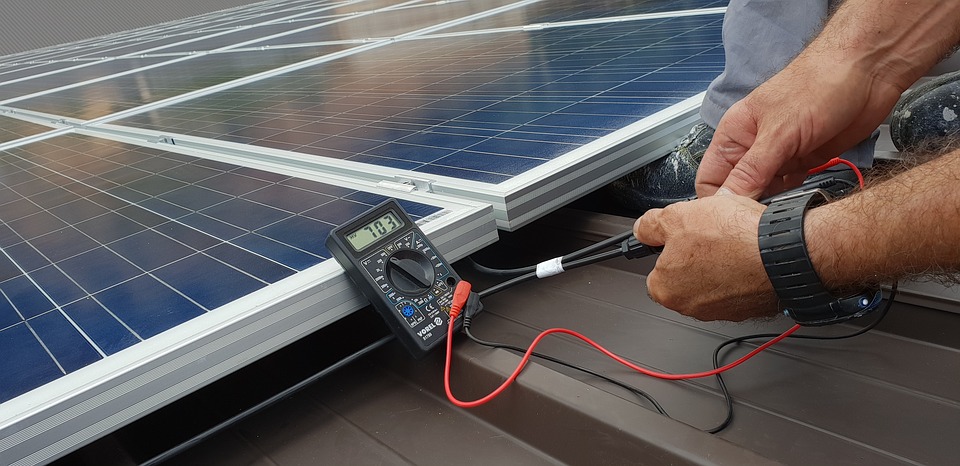In the rapidly growing field of renewable energy, solar panel installation stands out as a crucial component. Solar panel installers, also known as photovoltaic (PV) installers, play a pivotal role in transforming sunlight into electricity for homes, businesses, and communities. To excel in this dynamic and rewarding career, mastering certain key skills is essential. This article explores the top skills that every Solar Panel Installer should develop to ensure successful installations and contribute effectively to the renewable energy sector.
Technical Aptitude and Understanding
Electrical Systems Knowledge
A deep understanding of electrical systems is fundamental for solar panel installers. They must be proficient in:
- AC/DC Theory: Understanding alternating current (AC) and direct current (DC) electricity and their applications in solar energy systems.
- Circuit Design: Designing and configuring electrical circuits to optimize energy production and system efficiency.
- Inverter Operation: Installing and connecting inverters that convert DC electricity generated by solar panels into usable AC electricity for homes and businesses.
Mechanical Skills
Solar panel installation involves assembling and mounting various components. Installers should possess:
- Mechanical Assembly: Ability to assemble racking systems, attach panels securely, and integrate additional components such as inverters and batteries.
- Roofing Techniques: Familiarity with roofing materials and techniques to ensure proper sealing and waterproofing of panel mounts.
Safety and Compliance
Understanding Safety Protocols
Safety is paramount in solar panel installation due to the risks associated with working at heights and handling electrical components. Key safety practices include:
- Personal Protective Equipment (PPE): Proper use of PPE such as harnesses, gloves, and safety glasses to prevent injuries.
- Fall Protection: Implementing fall protection measures when working on rooftops or elevated structures.
- Electrical Safety: Adhering to National Electrical Code (NEC) guidelines to prevent electrical hazards and ensure system integrity.
Compliance with Regulations
Solar panel installers must comply with local building codes, permitting requirements, and industry standards. This includes:
- Permitting: Obtaining necessary permits for solar installations and ensuring installations meet local zoning regulations.
- Code Compliance: Following NEC guidelines and manufacturer specifications to ensure safe and efficient installations.
Problem-Solving Abilities
Diagnosing and Troubleshooting
Solar panel installers encounter various challenges during installations and maintenance. They should be adept at:
- Diagnostic Skills: Identifying and diagnosing issues related to panel performance, wiring faults, or system malfunctions.
- Troubleshooting Techniques: Applying systematic approaches to resolve problems efficiently and minimize downtime.
Adaptability and Flexibility
Projects may vary in scope and complexity, requiring installers to adapt to different environments and challenges. Being flexible and resourceful enables installers to overcome obstacles and deliver high-quality installations.
Attention to Detail
Precision in Installation
Installing solar panels requires meticulous attention to detail to ensure:
- Panel Orientation: Proper alignment and orientation to maximize sunlight exposure and energy production.
- Component Integration: Correct installation of inverters, wiring connections, and monitoring systems to maintain system efficiency.
- Sealing and Weatherproofing: Ensuring watertight seals and weatherproofing to protect roof integrity and prevent leaks.
Quality Assurance
Maintaining high standards of workmanship and quality assurance enhances customer satisfaction and system performance. Installers should conduct thorough inspections and tests to validate installation integrity and functionality.
Communication and Customer Service
Client Interaction
Effective communication with clients is essential throughout the installation process. Installers should:
- Educate Clients: Explain system operation, maintenance requirements, and energy savings benefits to homeowners and business owners.
- Address Concerns: Respond to client inquiries, provide updates on project progress, and resolve any concerns promptly.
Team Collaboration
Collaborating with project managers, electricians, and other team members ensures seamless project execution. Installers should:
- Coordinate Tasks: Work collaboratively to coordinate tasks, adhere to project timelines, and achieve project goals.
- Share Expertise: Share technical knowledge and best practices with team members to optimize installation efficiency and effectiveness.
Continuous Learning and Adaptation
Keeping Pace with Technology
The solar industry evolves rapidly with advancements in panel efficiency, energy storage solutions, and smart grid integration. Installers should:
- Stay Informed: Keep abreast of industry trends, technological advancements, and regulatory changes through training, workshops, and professional development opportunities.
- Skill Enhancement: Pursue certifications such as those offered by the North American Board of Certified Energy Practitioners (NABCEP) to demonstrate expertise and credibility in the field.
Environmental Awareness
Understanding the environmental benefits of solar energy and promoting sustainable practices contributes to the industry’s growth and positive impact on the environment. Installers play a vital role in advocating for renewable energy solutions and promoting energy efficiency.
Time Management and Efficiency
Project Planning and Execution
Effective time management is crucial for meeting project deadlines and ensuring efficient workflow. Installers should:
- Plan Ahead: Develop installation plans, assess site conditions, and anticipate project requirements to streamline operations.
- Optimize Resources: Efficiently allocate materials, equipment, and manpower to maximize productivity and minimize project costs.
Adapting to Industry Demands
Responding promptly to customer inquiries, scheduling installations, and managing multiple projects simultaneously requires organizational skills and adaptability.
Conclusion
Becoming a successful Solar Panel Installer involves mastering a diverse range of technical, safety, communication, and problem-solving skills. As the demand for renewable energy continues to grow, skilled installers play a vital role in expanding solar energy adoption and contributing to a sustainable future. By developing and refining these essential skills, solar panel installers can enhance job performance, advance their careers, and make a significant impact in the renewable energy sector.
Continuous learning, adherence to safety protocols, and commitment to quality ensure that solar panel installers deliver reliable and efficient solar installations that meet customer expectations and industry standards. With the right skills and dedication, solar panel installers can thrive in a rewarding career that promotes environmental stewardship and energy independence.





